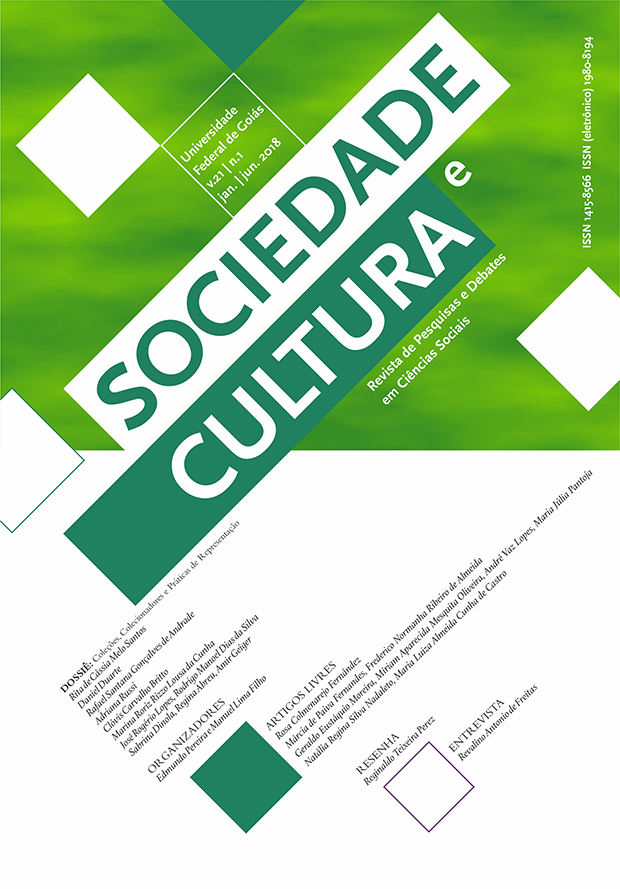Coleções, silêncios, higienização e hegemonia de classes – uma análise sobre os casos de Inhotim (Brasil) e Saint Louis Art Museum (EUA)
DOI:
https://doi.org/10.5216/sec.v21i1.54915Keywords:
Abertura democrática, Coleções, Higienização, Silêncios, Hegemonia de classesAbstract
No contexto contemporâneo, muitos museus de arte caminham
para se estruturarem com foco na lógica de mercado e nas
demandas de uma economia globalizada, ocasionando práticas
mais inclusivas, dialógicas, tecnológicas, concentradas em
volumes de audiência. No entanto, ao olhar para as coleções
expostas nestas instituições, é possível observar que, apesar
de uma suposta abertura democrática, estes objetos tendem
a ser indexados em referentes específicos, e em muitos casos,
sofrerem processos de higienização e silenciamento, reforçando
a relação desigual entre quem mostra e quem é mostrado.
Para entender melhor esta situação, este artigo concentrase
na análise de dois casos, o Instituto Inhotim (Brasil) e o
Saint Louis Art Museum (EUA). Procura entender o papel das
coleções ali presentes a fim de evidenciar, a partir da relação
entre investigadores e interlocutores, as redes e posições que
se constituem.
Downloads
Downloads
Published
How to Cite
Issue
Section
License
Authors who publish in this journal agree to the following terms:
- Authors retain the copyright and grant the journal the right of first publication, the work being simultaneously licensed under the Creative Commons Attribution License, which allows the sharing of the work with acknowledgment of authorship and of the initial publication in this journal;
- Authors are authorized to enter into additional contracts separately, for non-exclusive distribution of the version of the work published in this journal (eg, publishing in an institutional repository or as a book chapter), with acknowledgment of authorship and of the initial publication in this journal;
- Authors are allowed and encouraged to post and distribute their work online (eg, in institutional repositories or on their personal page) at any point before or during the editorial process, as this can bring productive change as well as increases the impact and the citation of the published work (see O Efeito do Acesso Livre).



